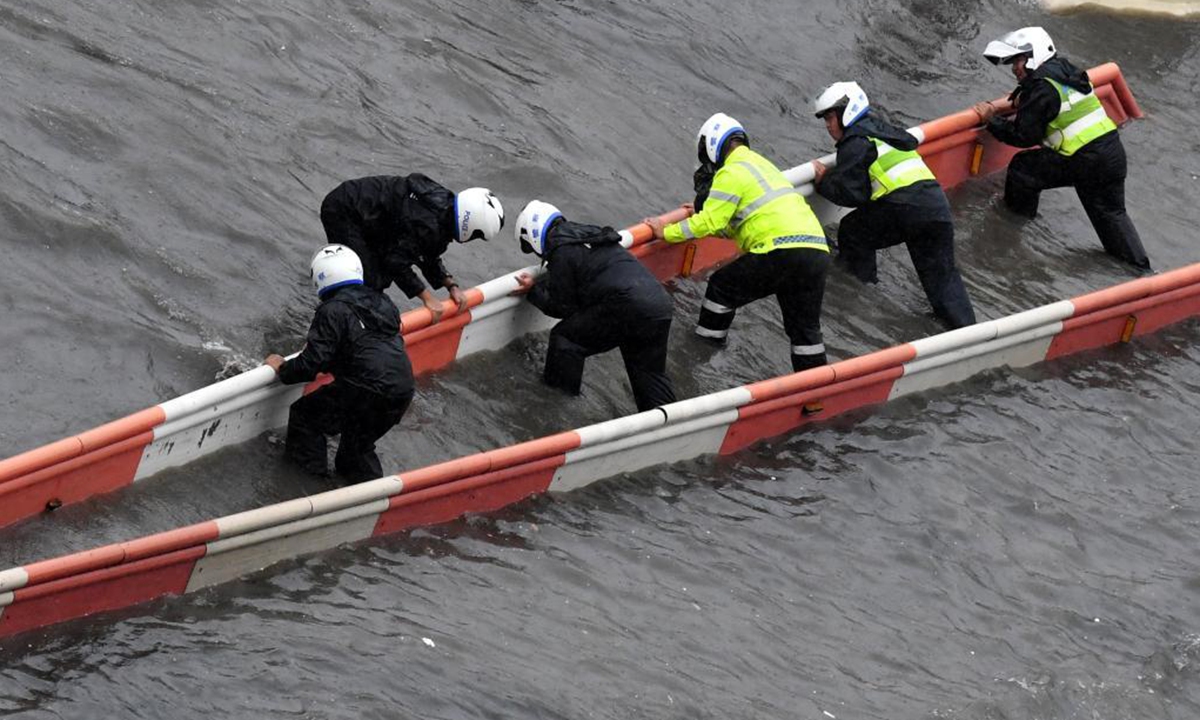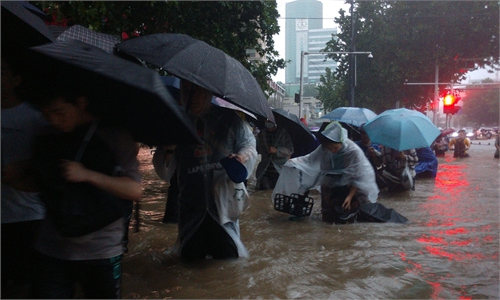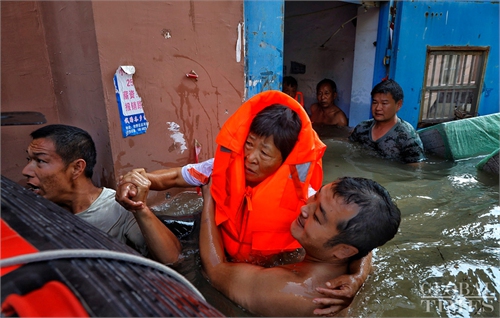Western media’s reputation collapse inevitable with their sensational fake news reporting

Traffic police repair road facilities in Zhengzhou, capital of central China's Henan Province, July 20, 2021. Photo: Xinhua
A Chinese Weibo user posted viral video clips on Saturday showing a journalist of German broadcaster Deutsche Welle was surrounded by some pedestrians after he filmed on the street. In the clips, the pedestrians who refused to be interviewed said they were angry because of Western media outlets' fake news about the natural disaster in Zhengzhou, capital city of Henan Province.On the same day, Al Jazeera English's China correspondent Katrina Yu wrote on Twitter that, "Sad sign of increasing anger and suspicion toward foreign media in #China. When we filmed in front of the #Zhengzhou subway crowds were recording us and calling the authorities." She also cited a Weibo post that shows her reporting on the street. The Weibo post asks local residents not to accept interviews from foreign media so as not to be maliciously used.
The Zhengzhou citizens' actions reflect how Chinese people have become wary of the Western media in recent years as they have been smearing and demonizing China. There is no secret that these media outlets are ideologically biased and values-oriented, particularly when it comes to China.
Over the past three decades, the Western media's selective coverage of China, especially in regards to catastrophic incidents, has played up issues of failed governance. They have slandered and exaggerated the flaws in China's system and governance. Some have even hyped up catastrophic incidents as humanitarian disasters. Such manipulation of public opinion has caused a very bad influence in Western society. It has resulted in unfriendly attitudes toward China created by the Western media.
With such distorted, inflammatory and erroneous reports, they are at the service of the West's strategic competition with China. The reports from the so-called objective, balanced and independent media in the West are in essence a political tool to stir up public opinion against Beijing.
But now is not the era when fake news can run rampant around the world due to lack of access to information. The era of the internet has greatly increased the access of people, especially young people, to get actual information. The Chinese people are able to distinguish between right and wrong.
Zhengzhou residents' refusal to be interviewed by foreign media outlets shows that Chinese society is spontaneously forming a trend against the Western media' demonization and smears against China. This is a sign that the Chinese people have a deeper understanding of the outside world, and a broader vision.
Western media or pro-West media have been attempting to discredit the Chinese government. They lucidly concoct sensational fantasies about China's governance system by spreading rumors with a purpose to sow discord between the people and the government. However, such schemes have finally failed. In recent years, China has maintained stability and economic prosperity, making people confident in the country and its future development. Thus, the Chinese people have repeatedly shown their disdain at the malicious smears and finger-pointing of the Western media.
The Chinese people and the Chinese government are of one mind. Any attempt to break the bond between them is bound to be opposed by the people. The Western media should have realized that the Chinese people are not easy to be fooled. And it is they who will have to pay the price for deceiving the Chinese people - which is the collapse of their reputation.
If Western media want to better communicate and interact with the Chinese people, they should rethink their own reports. They should work harder to draft China-related reports that are balanced and objective. If these Western media are responsible, what they should do is to persuade their political elites to remain rational and objective on China-related issues - rather than engage in shameful petty tricks to advance their careers with shallow sensational reports.
It will not only be increasingly difficult for Western media to maintain a good reputation in China, but also around the world. The reason is clear: Many of their reports are often based on fabricated lies and distorted facts. If they tell too many lies, their reputation will inevitably decline. Western media have only themselves to blame.
The author is professor at the Institute of International Relations of the China Foreign Affairs University. opinion@globaltimes.com.cn


